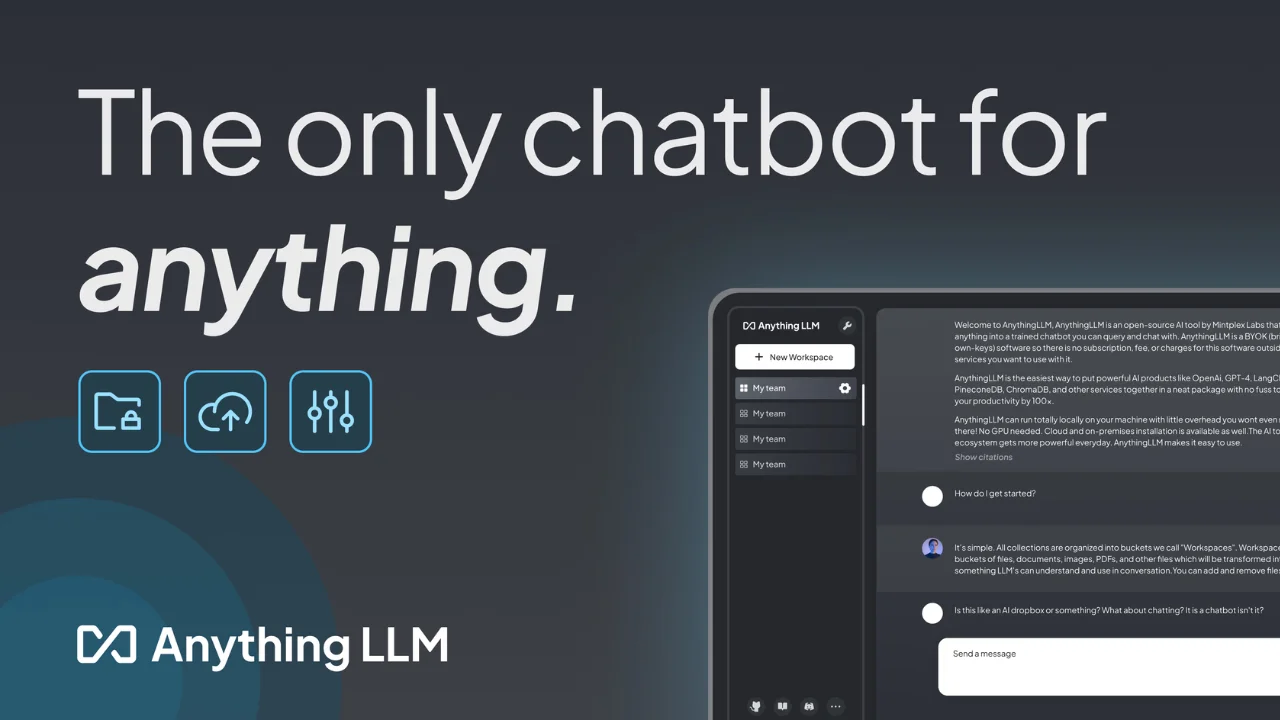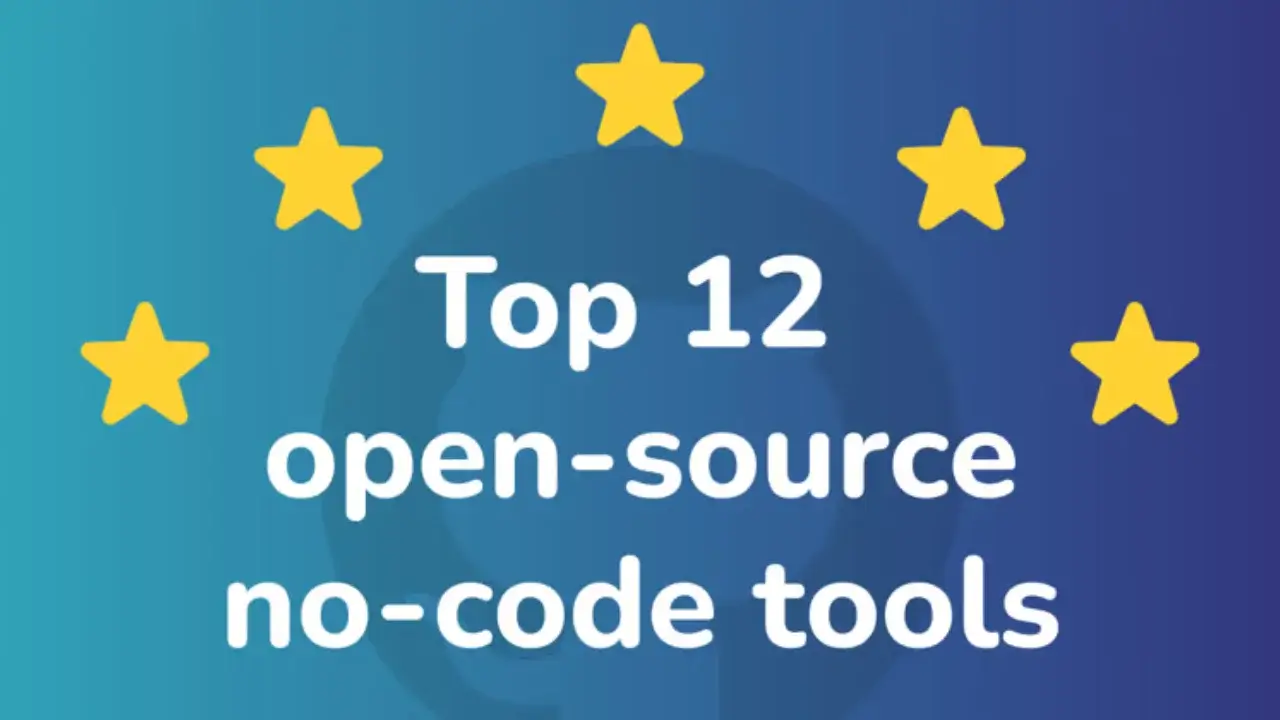
The Top 12 Open-Source No-Code Tools with the Most GitHub Stars
Explore the frontier of no-code development with our curated list of the top 12 open-source tools, each distinguished by its popularity on GitHub. From empowering entrepreneurs to enabling seasoned developers, these platforms offer intuitive interfaces and robust functionalities that democratize software creation without the need for traditional coding skills. Discover how these tools, recognized for their vibrant communities and extensive feature sets, revolutionize workflow automation, data integration, and application building. Whether you're a tech enthusiast or a business leader seeking efficiency gains, delve into our comprehensive guide to harnessing the power of no-code development with the most sought-after tools in the open-source community.
This article will meticulously outline the core features and suitable scenarios of these tools, assisting developers in selecting the solutions that best fit their project requirements.
Number 12: Formily
Formily is a performance-focused form library that supports React and Vue, utilizing JSON Schema for dynamic form generation.
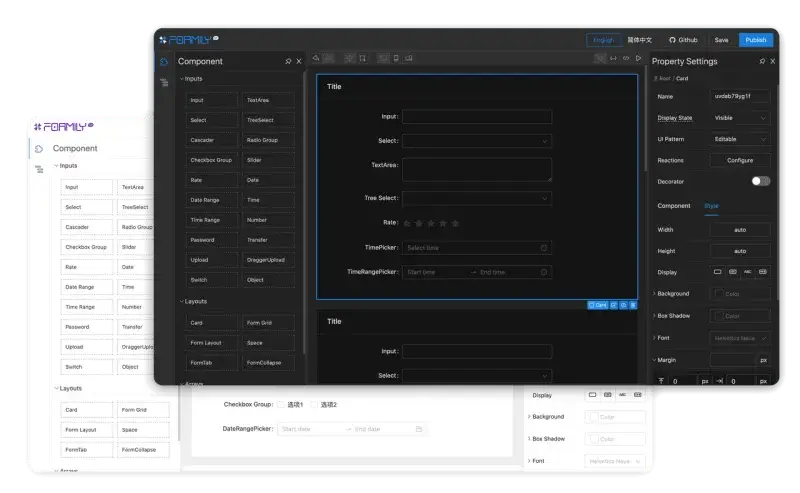
Features
- High Performance: Optimized for complex scenarios to ensure smooth form interactions.
- Dynamic Forms: Forms are configured and generated through JSON Schema, allowing for extensive customization.
- Multi-Framework Support: Provides support for both React and Vue frameworks, catering to diverse development needs and environments.
Use Cases
Ideal for applications that require dynamic form generation, especially in scenarios demanding rapid response to user inputs and complex form structures, such as enterprise backend management, dynamic surveys, and advanced configuration interfaces.
Number 11: NocoBase
NocoBase is an open-source, self-hosted, highly scalable no-code/low-code development platform that is flexible and easy to use, designed to rapidly build and extend enterprise applications through a plugin and modular approach.
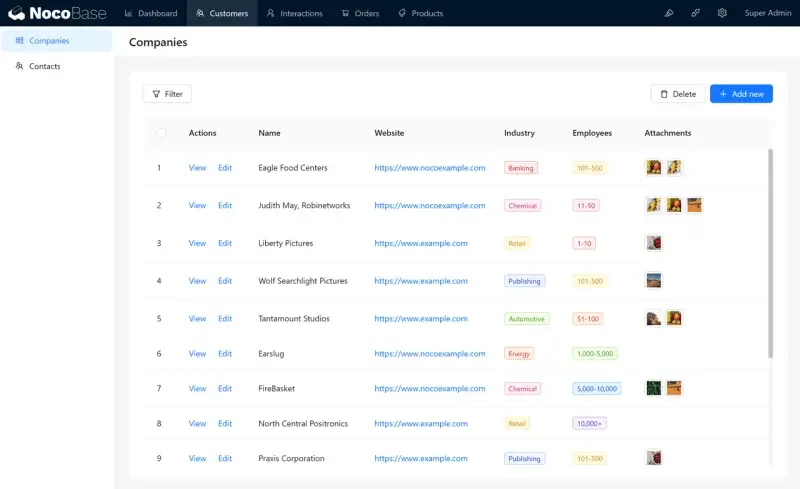
Features:
- Data Model Driven: Unlike traditional form and table-driven methods, NocoBase employs a data model-driven approach, separating user interface from data structure, supporting the development of complex business systems.
- Plugin System: All functionalities are implemented through plugins using a microkernel architecture, supporting extensive customization, including data sources and third-party API integration.
- Open Source and Technology Stack: Utilizes mainstream technology stacks such as Node.js and React, ensuring openness and transparency.
Use Cases
NocoBase is ideal for technical teams needing to quickly develop and deploy complex business systems, particularly suitable for data-intensive and dynamic business environments, such as CRM, ERP, and custom business applications.
Number 10: Mitosis
Mitosis is a development tool that allows developers to write component code once and then run it across multiple front-end frameworks, such as React, Vue, Angular, etc.
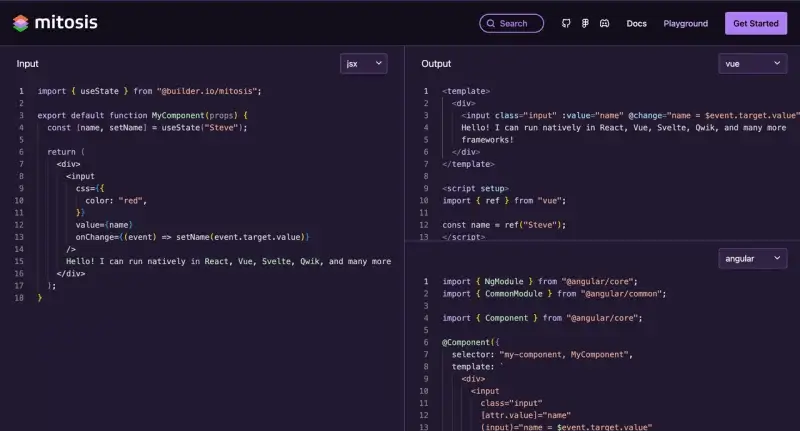
Features
- Framework Agnostic: Supports multiple front-end frameworks, ensuring broad compatibility of components.
- Component Conversion: Provides tools to convert components to different frameworks, simplifying cross-framework development.
Use Cases
Ideal for component development in multi-framework environments, particularly where team members use different technology stacks. Mitosis enhances code reusability and consistency.
Number 9: APITable
APITable is a powerful automation tool focused on streamlining workflows through a visual database, supporting connections with over 6,000 applications via tools like Zapier and Make.
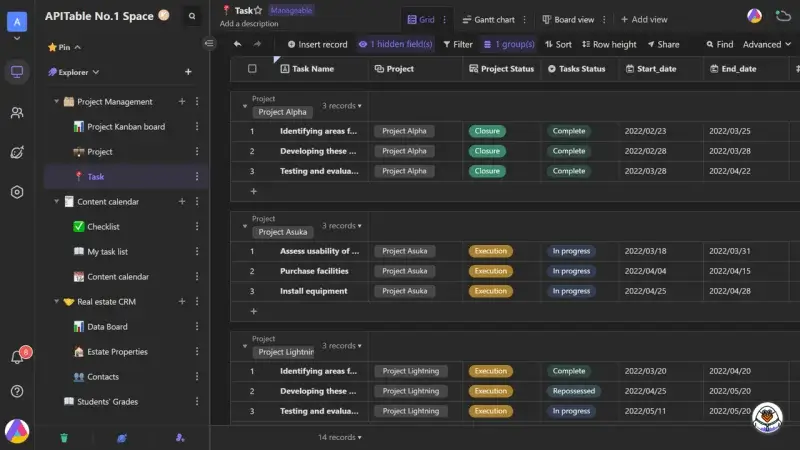
Features
- Extensive Application Integration: Connects with over 6,000 applications, supporting code-free automation.
- Data Flow Automation: Simplifies repetitive tasks, such as automatically sending Slack messages and emails after form submissions.
- User-Friendly Interface: Offers an intuitive visual database and customizable form functionalities.
Use Cases
APITable is suitable for individuals and businesses that require automation of data flows and simplification of daily work tasks, especially in the realms of CRM and project management.
Number 8: AMIS
AMIS, developed by Baidu, is a low-code front-end framework that rapidly generates complex front-end interfaces through JSON configuration.
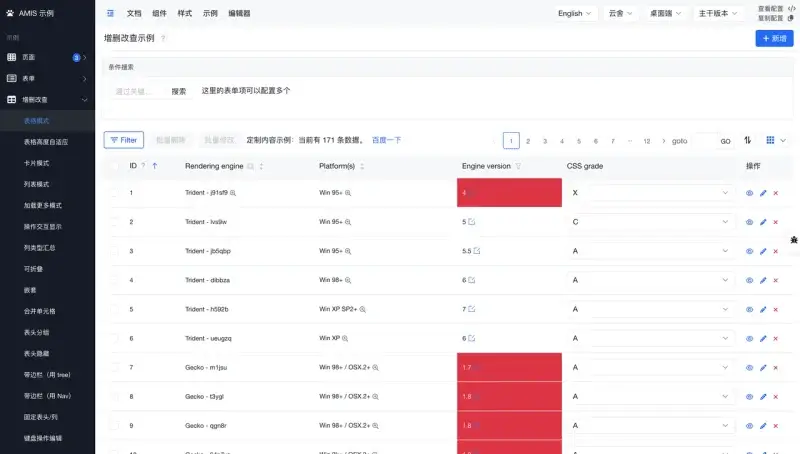
Features
- JSON Driven: Pages are generated through JSON configuration, enhancing the efficiency of front-end development.
- Rich Component Library: Includes a variety of components such as tables, forms, and charts to meet the demands of complex pages.
- Visual Editing: Supports visual operations to simplify the development process.
Use Cases
AMIS is ideal for scenarios requiring rapid development of rich, interactive front-end applications, particularly in administrative backends and complex data display areas.
Number 7: GrapesJS
GrapesJS is an open-source web builder framework that enables the creation of HTML templates without coding knowledge. It is designed to replace conventional WYSIWYG editors to optimize the process of creating HTML structures.
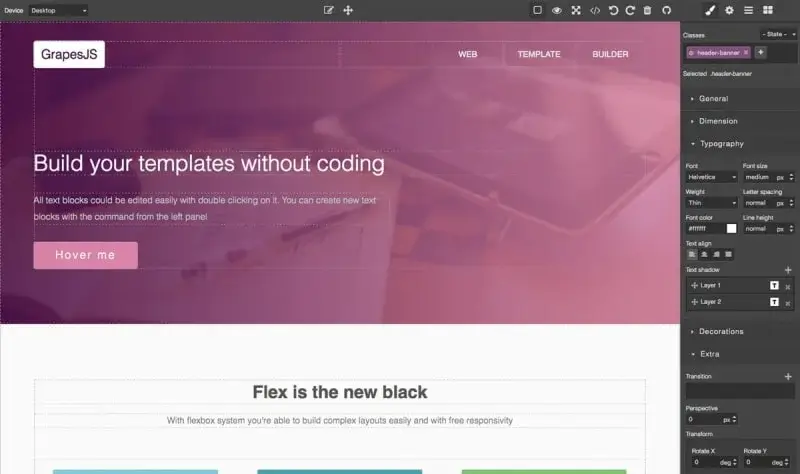
Features
- Drag-and-Drop Interface: Simplifies the template creation process with built-in blocks to accelerate development.
- Responsive Design: Ensures optimized template display across various devices, enhancing user experience.
- Style Management: A robust style management module allows for independent style adjustments, supporting a wide range of CSS properties.
Use Cases
GrapesJS is ideal for developers who wish to quickly create and manage web page templates through a visual interface, particularly suitable for scenarios requiring fine control over web design elements and styles.
Number 6: Directus
Directus is an open-source headless CMS that provides instantaneous REST and GraphQL APIs, allowing developers to manage content and data in a headless manner.
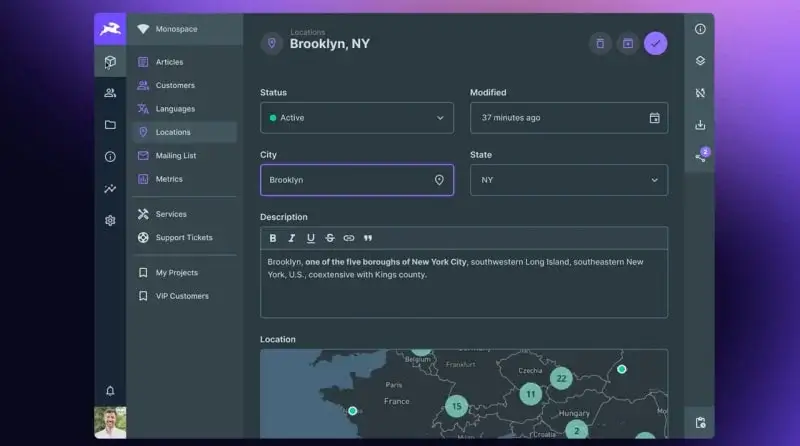
Features
- Multi-Database Support: Connects with any SQL database without the need for data migration or modification.
- High Customizability: Offers flexible data modeling and API design, accommodating complex data structures.
- Real-Time Data Synchronization: Supports real-time data interactions through WebSockets and GraphQL subscriptions.
Use Cases
Directus is ideal for developers and businesses needing a dynamic content management system, particularly in scenarios seeking high levels of freedom and scalability.
Number 5: FlowiseAI
Flowise is an open-source low-code tool specifically designed for developers to rapidly build and deploy customized large language model (LLM) applications.
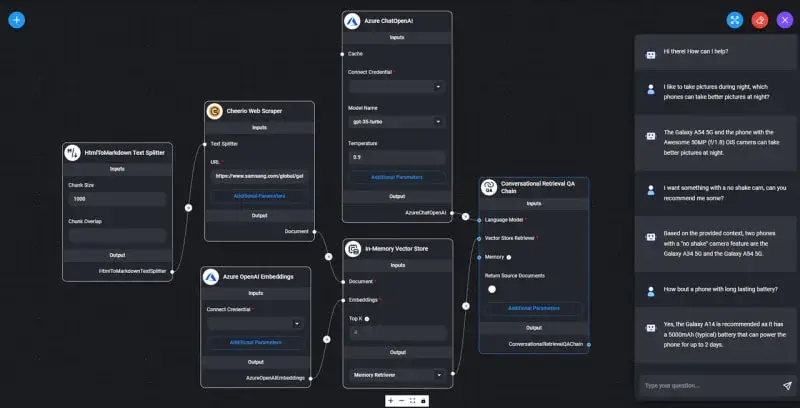
Features
- Rapid Iteration: Employs a low-code approach to accelerate the transition from testing to production.
- Drag-and-Drop Interface: Simplifies the creation of LLM applications, supporting the use of built-in templates and logic.
- Multimodal Integration: Facilitates connections to various APIs and tools, including chatbots and other AI agents.
Use Cases
Ideal for developers who need to quickly build and test AI-driven applications, particularly in complex systems that require integration of multiple data sources and services.
Number 4: ToolJet
ToolJet is an open-source low-code platform designed for building business applications. It can connect to databases, cloud storage, GraphQL, API endpoints, and more, utilizing a drag-and-drop app builder to create applications.
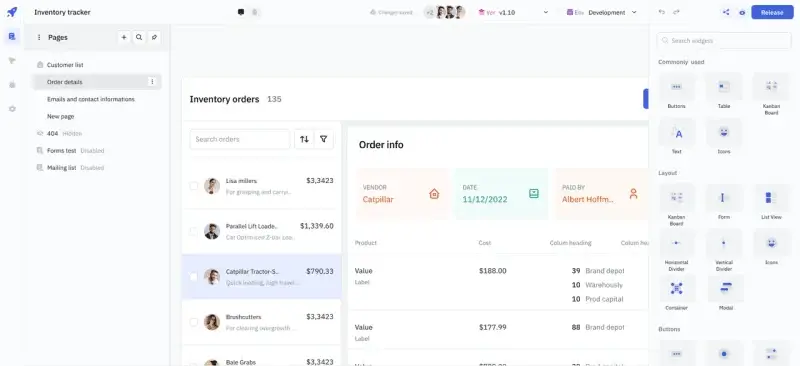
Features
- Multiple Data Source Connections: Supports seamless integration with over 50 different apps, databases, and APIs.
- Visual App Builder: Offers a drag-and-drop interface, simplifying front-end development.
- Workflow Automation: Enables the automation of complex manual business processes, reducing developer workload.
Use Cases
ToolJet is suitable for businesses that need to quickly build and maintain custom internal tools, especially in scenarios with complex integration requirements.
Number 3: NocoDB
NocoDB is an open-source alternative to Airtable, capable of transforming any database into a smart spreadsheet for powerful data management and automation.
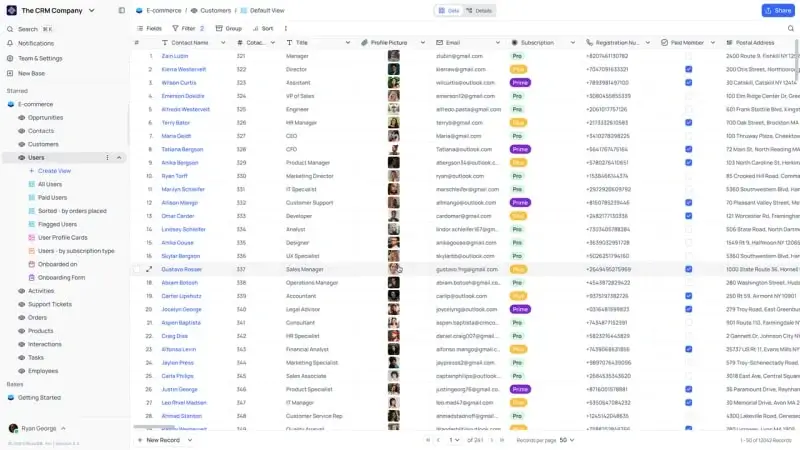
Features
- Flexible Data Views: Offers grid, kanban, gallery, form, and calendar views to accommodate various data presentation needs.
- High Scalability: Capable of handling millions of rows of data, suitable for large-scale database applications.
- Robust API Support: Provides high-throughput APIs to ensure flexible and efficient data operations.
Use Cases
NocoDB is ideal for businesses that require data-intensive operations, such as CRM, project management, operations management, and inventory management.
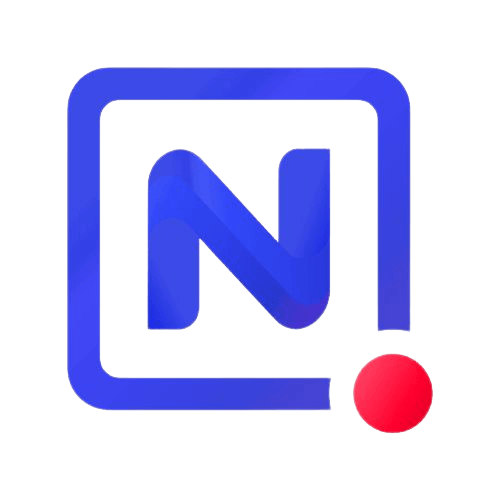
Start building NocoDB with Staas.io
The Open Source Airtable Alternative. Turns any MySQL, PostgreSQL, SQL Server, SQLite & MariaDB into a smart spreadsheet.
- Starting with attractive prices from only: $5
- Installation: NocoDB Installation Guide
Number 2: AppFlowy
AppFlowy is an open-source alternative to Notion, designed for offline use with a focus on data privacy and customizable features, supporting a wealth of plugins and templates.
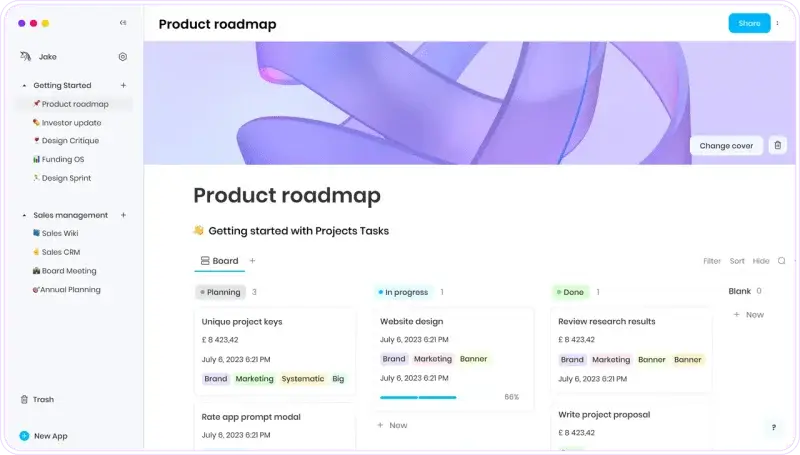
Features
- Highly Customizable: Offers expandable plugins, templates, and themes, allowing users to tailor the tool to their specific needs.
- Data Privacy Protection: Supports end-to-end encryption, ensuring data security.
- Multi-Platform Support: Available on various operating systems, including iOS and Android mobile platforms.
Use Cases
AppFlowy is suitable for individuals and teams who require high levels of data privacy and customizability, ideal for knowledge management, project collaboration, and personal note-taking.
Number 1: Strapi
Strapi is an open-source headless CMS built entirely in JavaScript/TypeScript, allowing developers the freedom to manage content using their preferred tools and frameworks, and to publish content anywhere.
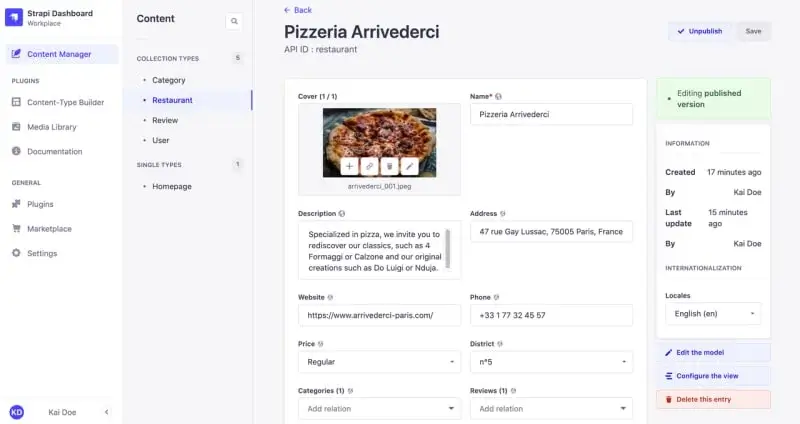
Features
- High Customizability: Enables developers to create custom plugins and features to meet diverse application needs.
- Robust API Support: Offers both REST and GraphQL APIs, providing developers with flexible content management options.
- Multilingual Support: Facilitates the creation of multilingual websites, enhancing global accessibility.
Use Cases
Strapi is ideal for developers and teams who need flexible content management and wish to utilize this content across various front-end frameworks via APIs.
Source: Devto


